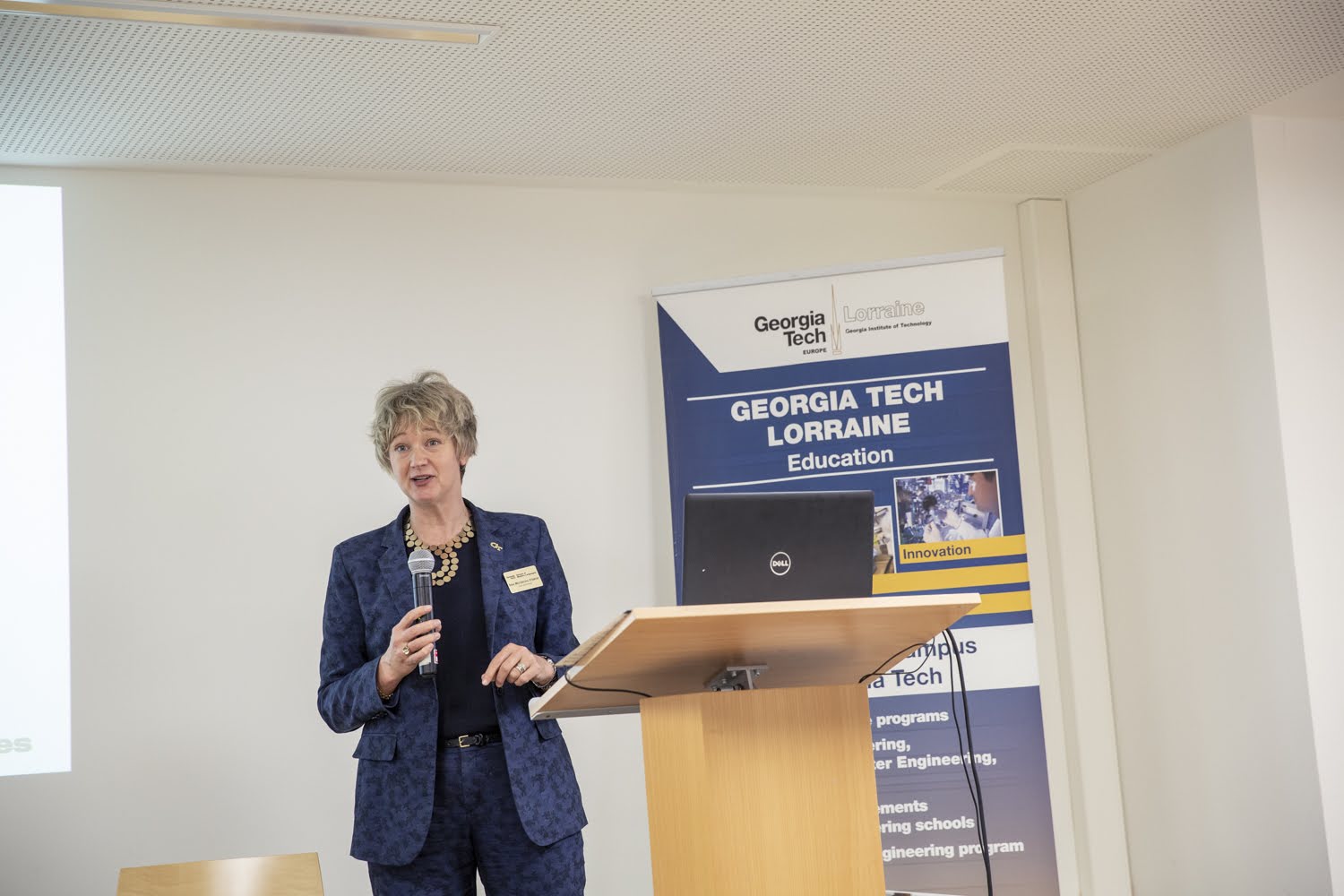
On September 7, some 70 Georgia Institute of Technology alumni, entrepreneurs, speakers, and guests from Europe and the U.S., including School of Modern Languages Chair and Professor Anna Westerstahl Stenport, convened in Munich for Georgia Tech's third European Innovation Forum.
By Paul DeMerritt, Ivan Allen College Communications
On September 7, roughly 70 Georgia Institute of Technology alumni, entrepreneurs, speakers, and guests from Europe and the U.S., including School of Modern Languages Chair and Professor Anna Westerstahl Stenport ,convened in Munich, Germany for Georgia Tech’s third European Innovation Forum.
The forum was created by Georgia Tech’s International Initiatives to share the breadth of the Institute’s international culture of innovation. This year's forum focused on three distinct themes:
- What Drives Innovation: Nature or Nurture?
- New and Traditional Careers
- Entrepreneurship and Artificial Intelligence (AI)
This year was also notable as it was the first iteration to include targeted corporate meetings with representatives from Adidas, BMW, General Electric, Google, IBM, Siemens, and the State of Georgia’s Europe Office.
The first two panels of the day centered on the global reach of Georgia Tech’s alumni entrepreneurship and the role that Artificial Intelligence plays driving industries of the future. Stenport closed the forum with a special presentation entitled “The University of the 21st Century and Languages at Georgia Tech.”
“I represented the Center for 21st Century Universities (C21U), the Ivan Allen College of Liberal Arts, and the School of Modern Languages and spoke about a number of educational innovations that integrate priorities in the Creating the Next in Education Commission’s emphasis on lifelong learning, whole person-skills, and the principles of T-shaped professionals, who demonstrate deep expertise in a technical field while simultaneously leveraging cross-communication and leadership competencies,” Stenport said.
She also highlighted the School of Modern Languages’ recent innovative graduate programs, such as the Master of Science in Global Media and Cultures and the Master of Science in Applied Languages and Intercultural Studies, in addition to its international summer offerings in Europe such as the Languages for Business and Technology in Germany, France, and Spain.
While the focus on Artificial Intelligence grounded the day’s entrepreneurial conversations in an explicitly technological context, Stenport highlighted the role that language and the humanities play in fostering global communication competencies.
“Humanities skills are critical to successful entrepreneurship as well as Artificial Intelligence. For instance, the School’s collaboration with Georgia Tech Lorraine-Metz in for a semester-long immersive sustainability-oriented program offered in French and in partnership with Serve-Learn-Sustain and the School of Modern Languages’s French program, which includes both community-based engagements and projects, as well as a course that is part of Georgia Tech’s CREATE-X entrepreneurship program. In terms of successful Artificial Intelligence, integrating cross-cultural understanding will be critical; this is a complex form of communication interaction, where knowledge of cultural assumptions and idiomatic language use is highly significant.”
Stenport believed the Innovation Forum was an effective showcase for the disciplinary breadth of Georgia Tech’s research and public engagement, and for the innovative academic programs in the Ivan Allen College and the School of Modern Languages.
